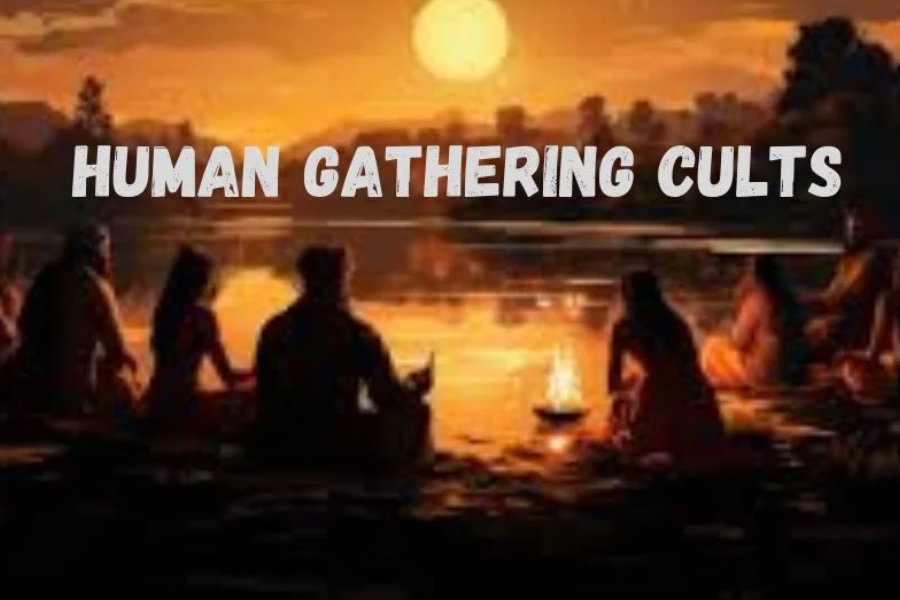Human Gathering Cults: Understanding the Psychology and Impact
The media’s sensationalization and general misconception of human get-together factions veil a novel social peculiarity that tests the center of human instinct and conviction frameworks. Public interest in these social orders has been aroused for a long time as a result of their shut and here and there stowed away nature. Yet, how complex are these religions? How about we research their experience, mental establishments, and present day indications.
Historical Context of Human Gathering Cults
The underlying foundations of human social event cliques follow back to old times when strict orders and philosophical networks advanced public living and shared convictions. Bunches like the Essenes in Judea or certain Gnostic groups in early Christianity can be viewed as forerunners to current factions, underlining withdrawal from standard society to frame very close networks. These early gatherings were much of the time driven by a longing for profound immaculateness, social change, or a more profound association with the heavenly.
Psychological Aspects of Cult Formation
Understanding the reason why people join religions requires inspecting mental inspirations. Individuals might be attracted to factions looking for belongingness, reason, or profound satisfaction. The charm of magnetic pioneers and the commitment of an idealistic way of life can likewise assume critical parts in drawing in supporters. Social personality hypothesis proposes that people join gatherings to upgrade their confidence and character, tracking down in religions a feeling of having a place and reason.
Religions likewise utilize different impact procedures, for example, love bombarding (extreme fondness and consideration), thought change, and gathering pressure, to cultivate reliance among individuals. This control of mental cycles subverts decisive reasoning and builds up bunch congruity.
Characteristics of Human Gathering Cults
Human gathering cults often exhibit distinct characteristics:
- Charismatic Leadership: Cults typically revolve around a charismatic leader who exerts significant influence over members through persuasion, manipulation, or charisma.
- Segregation and Control: Religions frequently confine individuals from outer impacts, controlling their admittance to data, connections, and assets to keep up with bunch union.
- Rigid Belief Systems: Cults espouse a distinct belief system or ideology that serves as the foundation of group identity and cohesion.
- Overall vibes: Factions encourage extraordinary collective vibes described by dedication, congruity, and dutifulness to power figures.
Impact on Members’ Lives
The effect of faction inclusion on people can be significant. Individuals frequently experience mental control, loss of independence, and profound reliance on the gathering. Passing on a religion can be trying because of social, profound, and now and then actual repercussions. Numerous previous individuals report sensations of culpability, disarray, and dread while endeavoring to reintegrate into standard society.
Media Portrayal and Perception
Religions have been a subject of interest in mainstream society, depicted in movies, books, and narratives. Nonetheless, media portrayals frequently sensationalize or misshape the real factors of clique life, propagating generalizations and confusions. These depictions can now and again glamorize or decry factions, making it challenging for the general population to comprehend the nuanced truth of these gatherings.
Legal and Ethical Considerations
Stimulating times lie ahead for Geekzilla Advanced recording as they look towards the future with forceful plans to develop their range and impact in the geek neighborhood. The hosts are conceptualizing new episode considerations that dive further into specialty parts of geek culture, dealing with an alternate group hungry for new blissful.
As well as researching obscure areas, Geekzilla is equipping to collaborate with prominent figures in news sources, conveying particular encounters and perspectives to their crowd individuals. By featuring different guests from different establishments, the advanced recording means to support attracting discussions and present uncommon viewpoints on moving focuses inside the geek world.
Moreover, the gathering behind Geekzilla is centered around overhauling crowd correspondence through live ever changing conversations and insightful studies by means of virtual diversion stages. This prompt responsibility builds up their bond with fans as well as thinks about nonstop analysis that shapes the course of future episodes.
Remain tuned as Geekzilla Computerized recording continues with its journey towards transforming into a principal voice in geek culture, setting new standards for redirection webcasts out of control.
Modern Examples of Human Gathering Cults
Ongoing many years have seen the ascent of trendy factions, some with worldwide reach and online presence. Bunches like NXIVM or Paradise’s Entryway feature the persevering through allure of factions in contemporary society and the advancing idea of religion elements. These advanced factions frequently influence innovation and online entertainment to select and hold individuals, making virtual networks that reflect customary religion structures.
Cult Recovery and Support
Recuperating from religion encounters frequently needs particular help. Associations and specialists give assets to previous individuals to reintegrate into society and recuperate from the mental injury related with clique inclusion. Support gatherings and directing can assist people with reconstructing their lives, recapture independence, and interaction their encounters.
Research and Studies
Scholastic exploration reveals insight into the systems behind faction conduct, offering experiences into collective vibes, administration impact, and the brain research of influence. Logical request demystifies factions and illuminate preventive methodologies. Concentrates on in brain research, social science, and strict examinations add to a more profound comprehension of why cliques structure and how they work.
Comparative Analysis
Separating between genuine strict or profound gatherings and hurtful factions is essential. While commitment and mutual living can be positive parts of specific networks, double-dealing and pressure mark the limits of faction conduct. It’s fundamental to perceive the indications of control and control that recognize hurtful cliques from harmless networks.
Cults and Online Influence
The web has turned into a ripe ground for faction enlistment and spread of philosophies. Web-based entertainment stages and online discussions work with admittance to weak people, introducing new difficulties in fighting web-based teaching. Protected, closed off environments and data bubbles made by online entertainment calculations can intensify bunch polarization and radicalization.
Debunking Myths and Providing Education
Instructing people in general about cliques is fundamental for avoidance. By scattering legends and advancing decisive reasoning, networks can perceive cautioning indications of cultic conduct and safeguard against control. Public mindfulness crusades, instructive projects, and open exchange can assist people with arriving at informed conclusions about their association in any gathering.
Impact on Families and Communities
Clique association influences people as well as their families and networks. Friends and family frequently battle to comprehend and mediate in clique elements, requiring local area backing and training to address the more extensive social effect. Relatives might require direction on the most proficient method to discuss successfully with friends and family engaged with cliques and offer help during the recuperation interaction.
Conclusion
Historical, psychological, and social variables all have a role in shaping human gathering cults. Protecting vulnerable people and encouraging educated discussion on belief systems and group dynamics both need an understanding of the dynamics of cult activity. By fostering awareness and providing support, society can mitigate the negative impacts of cults and promote healthier, more inclusive communities.
FAQs
How do cults recruit new members?
Cults use various methods, including social media outreach, personal connections, and hosting public events, to attract individuals seeking community and purpose.
What are the red flags of potential cult involvement?
Signs may include isolation from family and friends, pressure to cut ties with outsiders, and demands for significant financial contributions.
Are all cults harmful?
While not all cults are inherently harmful, many exhibit coercive or manipulative practices that can negatively impact members’ lives.
Can people recover from cult experiences?
Yes, with proper support and counseling, individuals can heal from cult experiences and reintegrate into society.
How can communities combat cult influence?
Education, open dialogue, and community support networks are essential in raising awareness and offering assistance to vulnerable individuals.
Get the freshest updates on gadgets, apps, and tech trends at Englandtimes.uk






